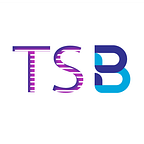Ethical Considerations in the Metaverse (Part 91)
Welcome to the 91st part of the 100-part series on Blockchain.
It is crucial to approach the use of Metaverse with a strong ethical foundation. Considering the potential impact on individuals, communities, and society as a whole, here are some key ethical considerations to keep in mind while using the metaverse:
(i) Privacy and Data Protection: Respecting and safeguarding individuals’ privacy is of utmost importance in the metaverse. As users interact and share information, it is crucial to obtain explicit consent before collecting or sharing personal data. Implement robust security measures to protect sensitive information from unauthorized access or data breaches. Transparency in data collection, use, and storage practices is vital, empowering individuals with control over their own data and fostering trust in the metaverse ecosystem.
(ii) Consent and User Empowerment: Obtaining informed consent from users is crucial when their involvement may have an impact within the metaverse. Clearly communicating the purpose, risks, and benefits of their engagement enables users to make informed choices. Empowerment means providing individuals with the ability to control their own experiences and interactions within the metaverse, allowing them to navigate the digital realm according to their preferences and comfort levels.
(iii) Ethical Content Creation: Responsibility in content creation is fundamental in the metaverse. Spreading misinformation, hate speech, or content that promotes discrimination, violence, or harm should be strictly avoided. Respecting intellectual property rights and acknowledging proper attribution is essential. Striving to create content that is informative, and adds value to the metaverse community helps shape a positive and enriching digital environment.
Encouraging respectful and constructive communication, collaboration, and cooperation cultivates a positive digital culture. Being mindful of our actions and words' impact on others promotes empathy and understanding. Creating an environment free from harassment, bullying, and harmful behaviors ensures a safe and nurturing metaverse for all participants.
(iv) Securing digital avatars: Avatars are the virtual embodiments of the users and should have the same legal authority in the metaverse as one’s legal rights in the real world because avatars are responsible for performing all the financial and other activities in the metaverse. So obviously, there is a need to protect the digital identity of users to protect it from getting compromised in some way like criminals may use a user’s digital avatar to perform illegal activities in the metaverse.
(v) Transparency and Authenticity: Transparency and authenticity are essential in the metaverse. Distinguishing between real and virtual identities and avoiding misleading or deceptive practices fosters trust and credibility. Honest and transparent communication, interactions, and transactions within the metaverse strengthen the foundations of responsible engagement. Transparency in content creation, branding, and partnerships ensures users can make informed decisions and fosters a sense of authenticity in the metaverse.
Thus, by embracing and incorporating these ethical considerations, we can ensure that the metaverse becomes a space that fosters inclusivity, respect, privacy, and positive engagement.
Enter Blockchain
Blockchain technology can play a significant role in fulfilling ethical considerations within the metaverse. Here’s how blockchain can contribute to each aspect:
- Privacy and Data Protection: Blockchain offers features such as encryption, decentralized storage, and user-controlled access that can enhance privacy and data protection. Personal data can be stored securely on the blockchain, and users can control access permissions through cryptographic keys (discussed in Part 6), ensuring that their information remains private and protected.
- Inclusivity and Accessibility: Blockchain’s decentralized nature removes barriers to entry and empowers individuals to participate in the metaverse. Smart contracts and decentralized applications (DApps) built on the blockchain can provide equal opportunities and accessibility for all users. Blockchain platforms can also facilitate multi-language support and accommodate diverse needs to ensure inclusivity.
- Consent and User Empowerment: Blockchain-based identity systems enable users to maintain control over their digital identities and personal information. Through self-sovereign identity models, individuals can give explicit consent for data sharing and decide which aspects of their identity they want to disclose within the metaverse.
- Ethical Content Creation: Blockchain can support content creators by enabling digital rights management and establishing verifiable ownership and attribution of creative works. NFTs on the blockchain can certify the authenticity and provenance of digital content, preventing plagiarism and promoting ethical content creation.
- Protecting avatars: The avatars would be protected by creating an NFT of the avatar that is recorded on Blockchain and represents user’s ownership of the avatar in the Metaverse. An NFT avatar is inherently unique, and whoever owns it is the only one on the Earth. The NFT, a digital property certificate, will certify that the NFT avatar belongs to its sole holder. It will also prevent anyone to use or clone your avatar.
- Protecting avatars’ rights in the metaverse: It would be a challenge in Metaverse to protect the rights of avatars and impose liability using existing legal concepts. For example, if an avatar steals a digital ‘Gucci bag’ or threatens another avatar in the ‘metaverse,’ this would involve issues relating to property rights, theft, and intellectual property law, like in a real court of law. That avatar could be punished using Blockchain. Every activity of the avatar would be recorded as a transaction on Blockchain. The smart contract would contain all the legal rules. If the avatar is found to be performing an illegal activity, the smart contract will trigger, and action will be taken against it based on the conditions pre-defined in the smart contract.
- Transparency and Authenticity: Blockchain’s transparent and tamper-resistant nature promotes transparency and authenticity in the metaverse. Users can verify the integrity of information, transactions, and identities recorded on the blockchain, fostering trust and discouraging deceptive practices.
Thus, the Blockchain’s features of decentralization, immutability, and cryptographic security provide a robust foundation for building an ethical and responsible metaverse ecosystem.
If you liked this article and want to know more about Blockchain, NFTs, Metaverse, and their applications, click the below link.
Happy learning!
